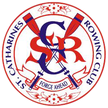St. Catharines Sports Hall of Fame inducting 3 SCRC members into the class of 2022
Barbara Armbrust - Athlete
Barbara Armbrust has a long list of accomplishments on the water, highlighted by winning a silver medal in the Women’s Coxed Four at the 1984 Olympic Games in Los Angeles, followed by a bronze in the same event at the 1985 World Rowing Championships, held in Hazewinkel, Belgium.
Barbara’s rowing career started with Sir Winston Churchill Secondary School in St. Catharines, from 1979 to 1982, where she earned three gold, two silver and one bronze at Canadian Secondary Schools Rowing Association Regattas.
Barbara’s skill earned her a spot with the Canadian national program from 1980 to 1988, starting with representing the nation at Junior World Championships in 1980, in Belgium, and 1981, in Bulgaria. In addition to medaling at the Olympics and Worlds, she represented Canada at the Lucerne International Regatta in 1983, where she earned silver in both the Women’s Coxed Four and Eight, the Worlds in Germany 1983, and the Worlds in England in 1986.
In 1987 Barbara was also recognized with the University of Victoria President’s Cup, awarded annually to the outstanding student-athlete in fourth or fifth year who best combines scholastic achievement and athletic ability.
Barbara’s rowing career started with Sir Winston Churchill Secondary School in St. Catharines, from 1979 to 1982, where she earned three gold, two silver and one bronze at Canadian Secondary Schools Rowing Association Regattas.
Barbara’s skill earned her a spot with the Canadian national program from 1980 to 1988, starting with representing the nation at Junior World Championships in 1980, in Belgium, and 1981, in Bulgaria. In addition to medaling at the Olympics and Worlds, she represented Canada at the Lucerne International Regatta in 1983, where she earned silver in both the Women’s Coxed Four and Eight, the Worlds in Germany 1983, and the Worlds in England in 1986.
In 1987 Barbara was also recognized with the University of Victoria President’s Cup, awarded annually to the outstanding student-athlete in fourth or fifth year who best combines scholastic achievement and athletic ability.
Daryl MacDonald - Athlete
Daryl MacDonald was born in St. Catharines on November 20, 1934. He was raised and lived in the Garden City for much of his life, until he was transferred by General Motors to Oshawa in January 1973. He lived in Oshawa the rest of his life where Daryl and his wife, Lois raised their two children, Darren and Mary-Ellen.
Daryl attended Merritton High School and graduated in 1953. While in high school he excelled in many sports including track and field (running), basketball, lacrosse, floor hockey, swimming and rugby. Darryl started rowing in 1953 and continued to compete and win at the highest levels until 1968.
Daryl competed internationally for Canada four times, including the 1968 Olympics in Mexico City; won 13 Royal Canadian Henley gold medals; three U.S. National gold medals; two American Henley gold medals; and 5 International Trial gold medals, as well as countless victories in both Singles, Fours and Eights on the local level throughout Ontario and in the United States.
Daryl continued to make a major contribution to rowing after his racing days were over. He was a member of the Canadian Association of Amateur Oarsman Technical Committee and the driving force behind the changes in selection and training methods of oarsmen in order to make them more competitive on an international level. His plan included inclusion of sports medicine, psychological training as well as improved equipment to test athletes’ abilities.
Daryl had many mentors in his life, especially in sport, and he was also a mentor to others.
Daryl attended Merritton High School and graduated in 1953. While in high school he excelled in many sports including track and field (running), basketball, lacrosse, floor hockey, swimming and rugby. Darryl started rowing in 1953 and continued to compete and win at the highest levels until 1968.
Daryl competed internationally for Canada four times, including the 1968 Olympics in Mexico City; won 13 Royal Canadian Henley gold medals; three U.S. National gold medals; two American Henley gold medals; and 5 International Trial gold medals, as well as countless victories in both Singles, Fours and Eights on the local level throughout Ontario and in the United States.
Daryl continued to make a major contribution to rowing after his racing days were over. He was a member of the Canadian Association of Amateur Oarsman Technical Committee and the driving force behind the changes in selection and training methods of oarsmen in order to make them more competitive on an international level. His plan included inclusion of sports medicine, psychological training as well as improved equipment to test athletes’ abilities.
Daryl had many mentors in his life, especially in sport, and he was also a mentor to others.
Donald F. Thom, Builder
Don Thom had been a coxie of the St. Catharines Rowing Club’s 1929 Junior Eight which won at the Royal Canadian Henley Regatta that year.
He became president of the St. Catharines Rowing Club in 1945 and was the person most responsible for the rejuvenation of the club after the Depression and the Second World War. However, he was quick to acknowledge that he did not accomplish this alone, describing his directors as being “composed of men who knew rowing, men who knew business, and men who knew both”.
Don was a strong booster of the St. Catharines Rowing Club and believed supporting great athletes with top-of-the-line equipment was an important part of building successful rowing crews and successful clubs. He was also successful in developing a women’s rowing program in 1947 which continued for three years before being disbanded due to lack of competition.
Don went on to hold executive positions on the Henley Aquatics Association from 1950 to 1971, and regularly dealt with the Canadian Association of Amateur Oarsmen in the promotion and development of the Henley rowing course, as well as the St. Catharines Rowing Club. He continued to be a strong supporter of rowing in St. Catharines until his death, and his legacy lives on at the Henley each year when the Donald F. Thom Memorial Trophy is awarded to the winner of the Men’s Eight Dash.
He became president of the St. Catharines Rowing Club in 1945 and was the person most responsible for the rejuvenation of the club after the Depression and the Second World War. However, he was quick to acknowledge that he did not accomplish this alone, describing his directors as being “composed of men who knew rowing, men who knew business, and men who knew both”.
Don was a strong booster of the St. Catharines Rowing Club and believed supporting great athletes with top-of-the-line equipment was an important part of building successful rowing crews and successful clubs. He was also successful in developing a women’s rowing program in 1947 which continued for three years before being disbanded due to lack of competition.
Don went on to hold executive positions on the Henley Aquatics Association from 1950 to 1971, and regularly dealt with the Canadian Association of Amateur Oarsmen in the promotion and development of the Henley rowing course, as well as the St. Catharines Rowing Club. He continued to be a strong supporter of rowing in St. Catharines until his death, and his legacy lives on at the Henley each year when the Donald F. Thom Memorial Trophy is awarded to the winner of the Men’s Eight Dash.
Credit: St. Catharines Sports Hall of Fame































